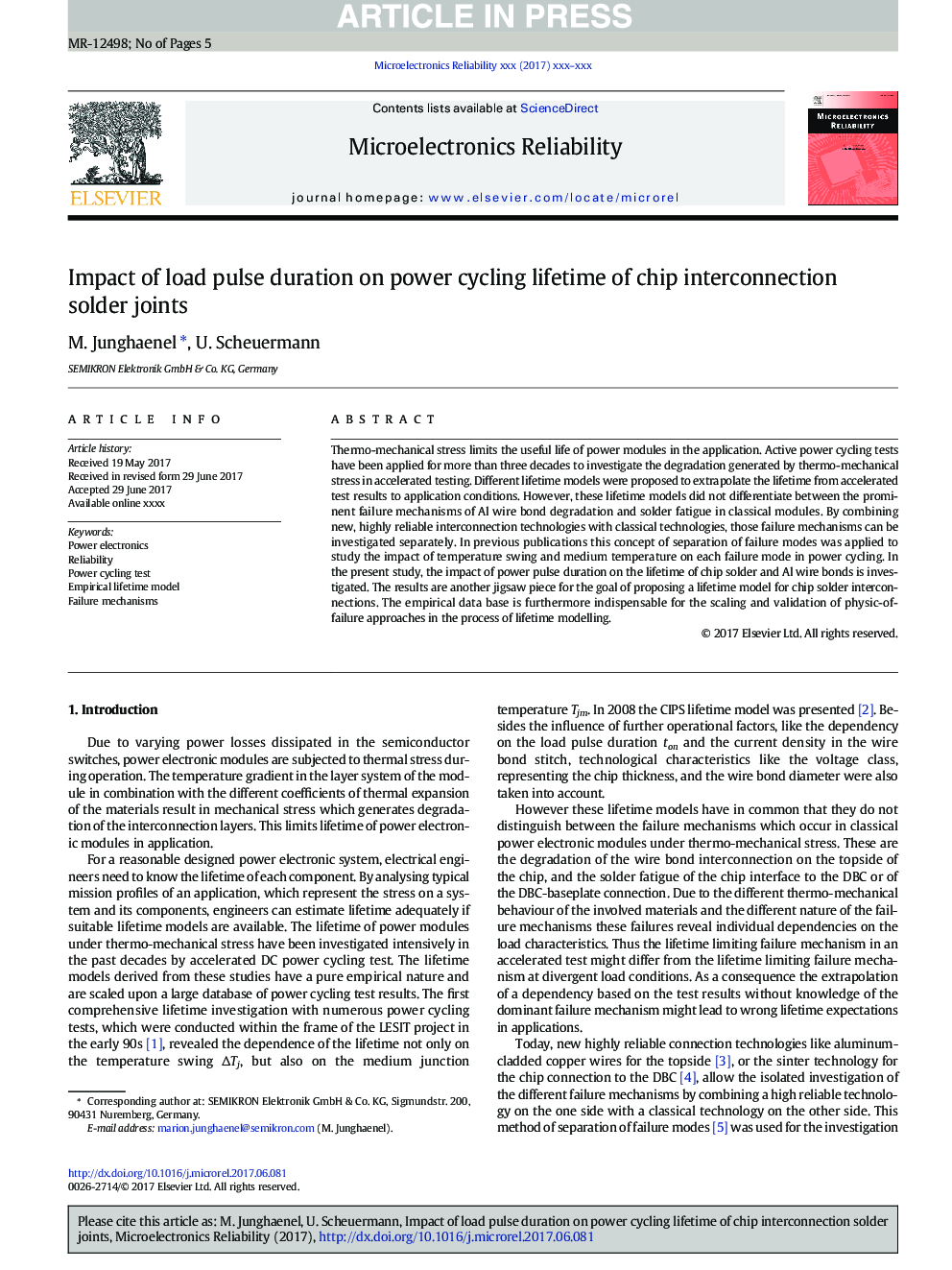| Article ID | Journal | Published Year | Pages | File Type |
|---|---|---|---|---|
| 4971650 | Microelectronics Reliability | 2017 | 5 Pages |
Abstract
Thermo-mechanical stress limits the useful life of power modules in the application. Active power cycling tests have been applied for more than three decades to investigate the degradation generated by thermo-mechanical stress in accelerated testing. Different lifetime models were proposed to extrapolate the lifetime from accelerated test results to application conditions. However, these lifetime models did not differentiate between the prominent failure mechanisms of Al wire bond degradation and solder fatigue in classical modules. By combining new, highly reliable interconnection technologies with classical technologies, those failure mechanisms can be investigated separately. In previous publications this concept of separation of failure modes was applied to study the impact of temperature swing and medium temperature on each failure mode in power cycling. In the present study, the impact of power pulse duration on the lifetime of chip solder and Al wire bonds is investigated. The results are another jigsaw piece for the goal of proposing a lifetime model for chip solder interconnections. The empirical data base is furthermore indispensable for the scaling and validation of physic-of-failure approaches in the process of lifetime modelling.
Related Topics
Physical Sciences and Engineering
Computer Science
Hardware and Architecture
Authors
M. Junghaenel, U. Scheuermann,
